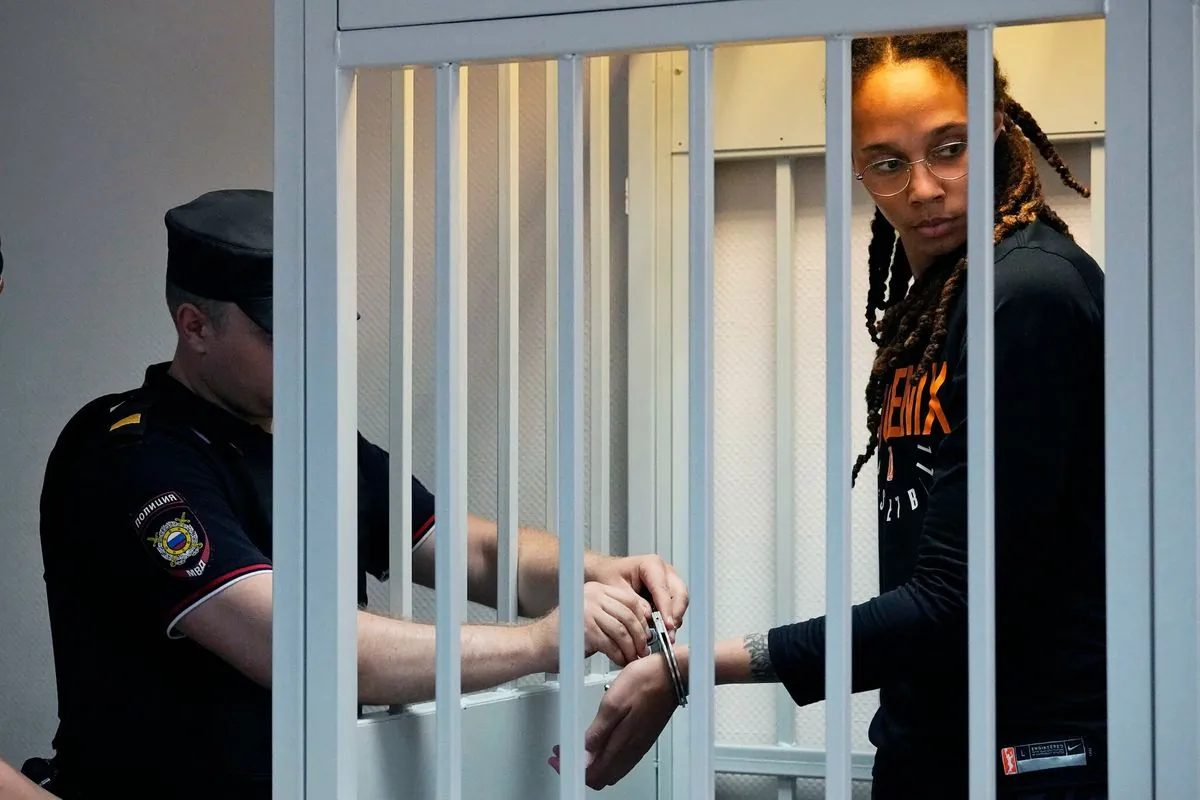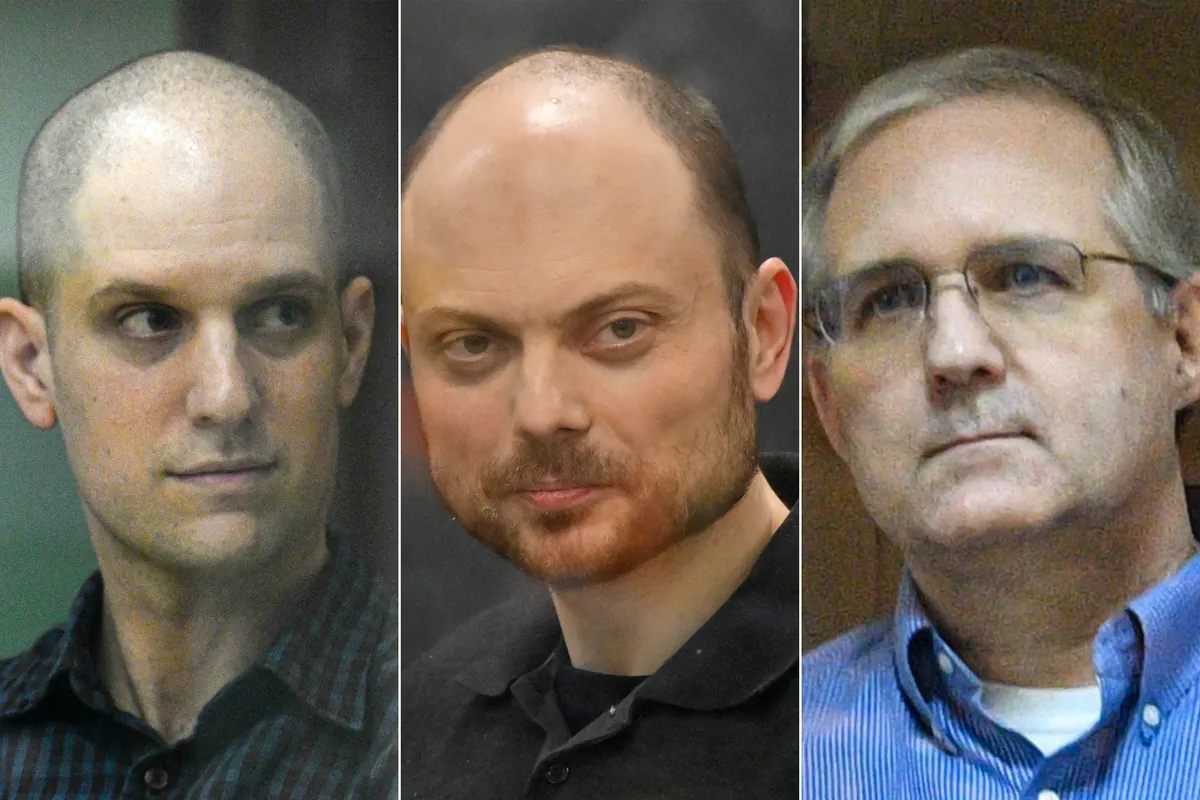Major US-Russia Prisoner Swap: 24 Individuals Exchanged in Diplomatic Breakthrough
A significant East-West prisoner exchange took place, involving 24 individuals from the US, Russia, Germany, and other countries. The swap included prominent figures and two children, marking a diplomatic milestone.

A significant East-West prisoner exchange occurred on August 1, 2024, involving 24 individuals from various countries. This diplomatic breakthrough saw the release of prisoners held in Russia, the United States, Germany, and other nations.
Four individuals returned to the United States from Russia:
- Evan Gershkovich
- Paul Whelan
- Alsu Kurmasheva
- Vladimir Kara-Murza
Evan Gershkovich is notable as the first American journalist arrested on espionage charges in Russia since the Cold War era. Paul Whelan, a former U.S. Marine, had been detained in Moscow since 2018. Vladimir Kara-Murza, a prominent Russian opposition figure and journalist, was also among those released.
Twelve individuals, including German nationals and Russian political prisoners, were transferred to Germany:
- Dieter Voronin
- Kevin Lick
- Rico Krieger
- Patrick Schoebel
- Herman Moyzhes
- Ilya Yashin
- Liliya Chanysheva
- Kseniya Fadeyeva
- Vadim Ostanin
- Andrey Pivovarov
- Oleg Orlov
- Sasha Skochilenko
Ilya Yashin, a Russian opposition politician and Kremlin critic, was among those released to Germany.

Eight individuals returned to Russia from various countries:
- Vadim Krasikov (from Germany)
- Artem Viktorovich Dultsev (from Slovenia)
- Anna Valerevna Dultseva (from Slovenia)
- Mikhail Valeryevich Mikushin (from Norway)
- Pavel Alekseyevich Rubtsov (from Poland)
- Roman Seleznev (from the United States)
- Vladislav Klyushin (from the United States)
- Vadim Konoshchenock (from the United States)
Vadim Krasikov had been convicted in Germany for the 2019 assassination of a Georgian citizen in Berlin. Roman Seleznev, son of a Russian lawmaker, was previously sentenced in the U.S. for cybercrimes.
This exchange highlights the complex nature of international prisoner swaps, which often involve lengthy negotiations and can take years to arrange. Such exchanges have a long history, with the largest occurring after World War II, involving millions of people.
It's worth noting that two children were involved in this swap, though they were not prisoners themselves. This detail adds a humanitarian aspect to the exchange.
Prisoner swaps can have significant diplomatic implications. While they can potentially lead to improved relations between countries, some critics argue that they might encourage hostage-taking. The psychological impact on those released after prolonged imprisonment can also be substantial.
This exchange marks a notable diplomatic event in US-Russia relations, continuing a tradition of high-profile prisoner swaps that dates back to the Cold War era.


































